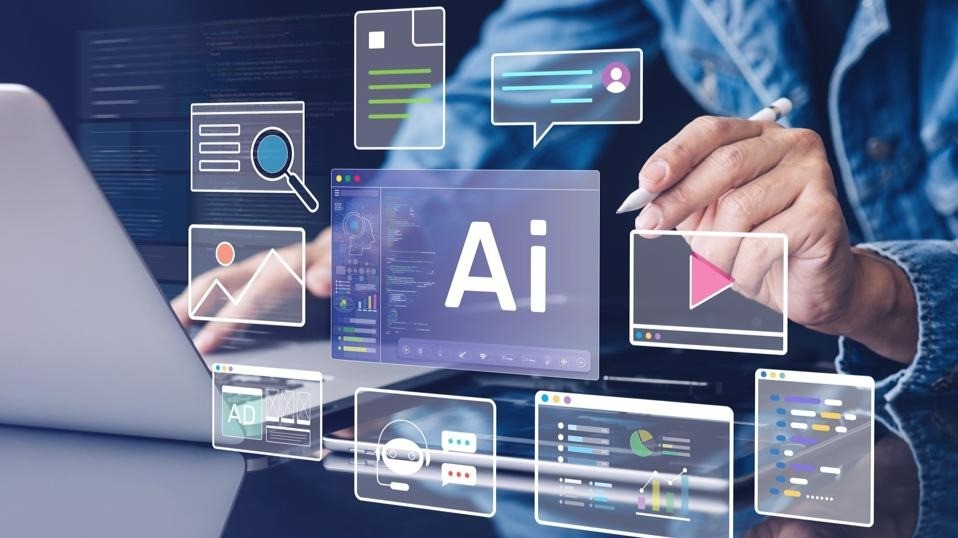Internet Of Things (IoT): 5 Essential Ways Every Company Should Use It
2 July 2021
The Internet of Things (IoT) means everyday objects are now creating data and connecting to the internet. The result is more data – a lot more data. Data we can use in ways we could not have imagined even 10 years ago. Watches now monitor our sleep and keep track of our activities, TVs understand what we say, golf clubs tell us how to improve our swing, and cars, planes or ships make autonomous journeys.

Today, we have about 15 billion IoT devices. By 2020, it is predicted that the number will grow to between 50 and 70 billion devices connected to the internet. This means the possibilities of how to use these devices and the data they generate are endless. And herein lies the problem: it is far too easy for companies to get overwhelmed and lost by all this.
Where do they start with the IoT? How do they best use it? These are just some of the million-dollar questions about the IoT. Unfortunately, many companies are jumping on the IoT bandwagon without giving much thought to how this is linked to their business strategy or how they could generate the biggest business value.
Instead, I propose that every company should make it a priority to take some time to determine how it might use the IoT (and the data that it generates) strategically to propel their business. In my book ‘Data Strategy: How To Profit From A World Of Big Data, Analytics And The Internet Of Things’, I have identified the following 5 essential ways companies can use the IoT, which should help anyone structure their IoT discussions.
Generally, the following are the key uses of the IoT in business:
- Improve decision-making
- Understand customers
- Deliver new customer value propositions
- Improve and optimize operations
- Generate an income and improve the value of the business
- Let’s take a look at each.
Improve decision-making
The huge volumes of new data from IoT sensors and devices simply adds to the massive pool of big data we now have in the world and intelligent companies use that data to inform strategic and operational decision making. Strategic decision making is where the senior leadership team identifies the critical questions it needs answering. Operational decision-making is where data and analytics are made available to everyone in the organization, often via a self-service tool, to inform data-driven decision at all levels.
Better understand customers
More and more companies make IoT-enabled products which connect them directly to their customers’ behaviours and preferences. For example, Fitbit knows how much we all exercise and what our normal sleeping patterns are. Samsung can collect usage data from their smart TVs. Elevator manufacturer Kone learns how their customers are using their elevators and Rolls Royce knows how airlines use the jet engines they make. Even companies that don’t make IoT devices can often gain access to data from other people’s devices, just think app makers that are able to collect user data because of the data collection and connectivity capabilities of the smart phones or tablets that run them. Used correctly, companies can leverage these insights to make quicker and better business decisions. By aggregating the data, analysts can look for trends and identify new business opportunities.
Deliver new customer value propositions
One step further from using IoT devices to better understand customers is to make them part of your offering. For example, tractor and farm equipment manufacturer John Deere uses the IoT in many different ways to offer new and innovative products and services to their customers. These range from self-driving tractors to intelligent farming solutions where sensors continuously monitor soil health and crop levels and give famers advice on what fertiliser to use and what crops to plant.
Improve and optimise operations
The data generated from all the IoT devices can also be used to improve the ways companies are run. It can help to automate factories and improve the efficiency of internal processes. Uber, the smartphone app-based ride booking service that connects users who need to get somewhere with drivers, developed algorithms that use data from sensors and smart phones to monitor traffic conditions and journeys in real time. Not only does this real-time data allow the company to adjust its prices based on demand, it also helps manage the supply of drivers. When drivers see that demand is high, they will head out to offer their driving services to meet the demand while they will stay home when the data tells them demand is low. Rolls-Royce is another great example. Its manufacturing systems are networked in an IoT environment. At their factory in Singapore, Rolls-Royce generates half a terabyte of manufacturing data on each individual fan blade they produce. They use this data for quality control purposes, a critical area for success for the company.
Make an income and improve the value of the business
The data and insights our IoT devices generate are often extremely valuable. The most direct way to appreciate this value is by selling the data or insights to others. Google’s Nest is a great example. It is collecting real-time energy usage data from consumers and is now able to sell these insights to utility companies or interested parties.
Beyond the direct income, data and a company’s ability to use it is one of the most important assets of modern companies. Data is a business asset that is just as critical, if not more critical, to manage and account for as you would for other assets such as human capital and inventory. Whether your data assets just bolster the bottom line of your company’s worth or you find other entities willing to pay you for access to the data you collect, companies are finding additional value streams because of their data.
The IoT developments aren’t going to slow down anytime soon, but the faster your organisation develops and implements a strategy, the more secure your future will be.
Related Articles
10 Generative AI Trends In 2026 That Will Transform Work And Life
By now, “smart” versions exist of just about every home appliance, gadget and gizmos we can think of. However, manufacturers continue[...]
Dreamforce 2025 Proved The Agentic Enterprise Has Arrived
By now, “smart” versions exist of just about every home appliance, gadget and gizmos we can think of. However, manufacturers continue[...]
The 8 Biggest AI Agent Trends for 2026 That Everyone Must Be Ready For
By now, “smart” versions exist of just about every home appliance, gadget and gizmos we can think of. However, manufacturers continue[...]
7 Workplace Trends That Will Define 2026
By now, “smart” versions exist of just about every home appliance, gadget and gizmos we can think of. However, manufacturers continue[...]
Is Autonomous Driving Ever Going To Happen?
By now, “smart” versions exist of just about every home appliance, gadget and gizmos we can think of. However, manufacturers continue[...]
AI And The End Of Progress? Why Innovation May Be More Fragile Than We Think
By now, “smart” versions exist of just about every home appliance, gadget and gizmos we can think of. However, manufacturers continue[...]
Sign up to Stay in Touch!
Bernard Marr is a world-renowned futurist, influencer and thought leader in the fields of business and technology, with a passion for using technology for the good of humanity.
He is a best-selling author of over 20 books, writes a regular column for Forbes and advises and coaches many of the world’s best-known organisations.
He has a combined following of 4 million people across his social media channels and newsletters and was ranked by LinkedIn as one of the top 5 business influencers in the world.
Bernard’s latest book is ‘Generative AI in Practice’.










Social Media